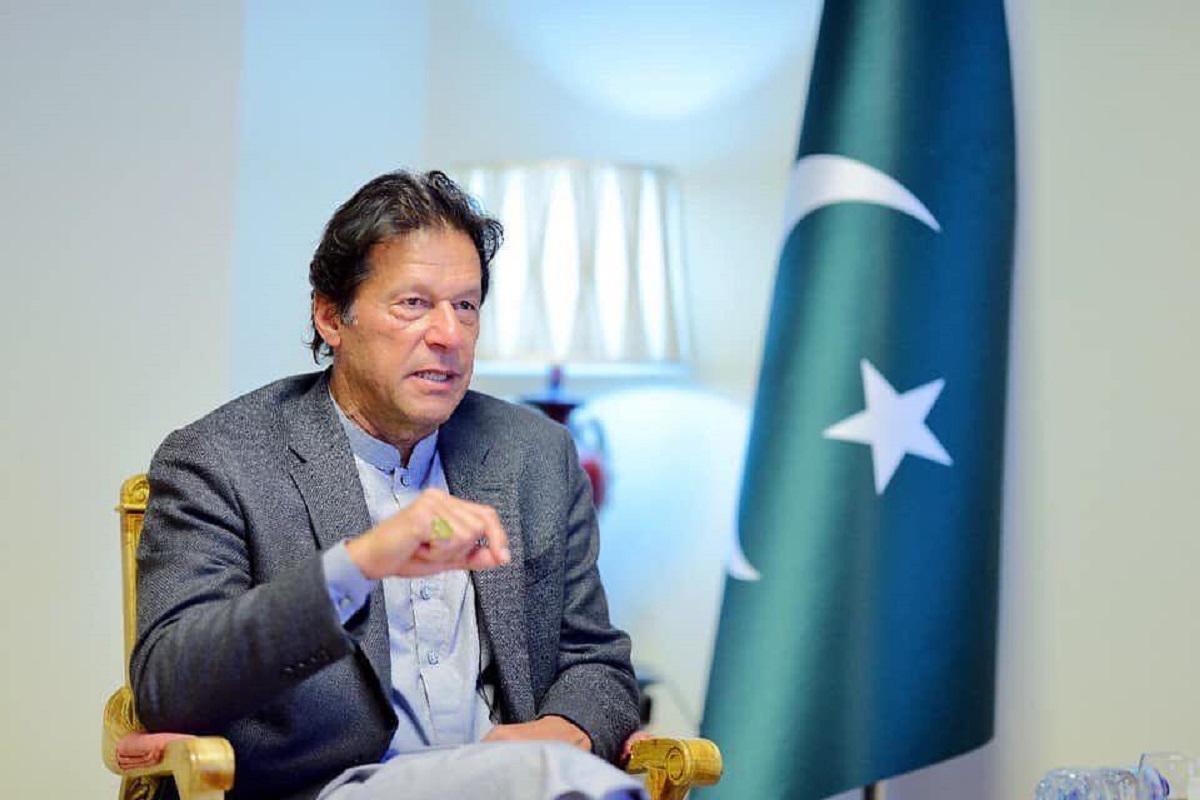Pakistan rejects US report on human rights practices
This year's report is once again conspicuous by its lack of objectivity and politicization of the international human rights agenda, it added.
“We are friends with Russia and we are also friends with America. We are friends with China and with Europe. We are not in any camp.” On March 2, Pakistan along with 34 other countries had abstained from voting on the United Nations’ resolution that condemned the “Russian aggression against Ukraine”.

Pakistan Prime Minister Imran Khan (Facebook photo)
Almost coinciding with the no-confidence motion against the Pakistan Prime Minister, a robust assertion of diplomacy has been made by Imran Khan. In the net, he has debunked foreign diplomats, and asserted the “independence” of his country’s foreign policy.
He has been under pressure to be party to a UN resolution that has condemned Russia for its aggression of Ukraine. Nay more, he has accused the envoys of treating the people of Pakistan like “slaves”. Arguably to convey a message to the fractured Opposition, he has lampooned the letter from the European Union in addition to Japan, Switzerland, Canada, the United Kingdom and Australia which had urged Pakistan to abjure its policy of neutrality and join them in condemning the Kremlin.
He has posed a remarkably pertinent question, albeit in a seemingly intemperate manner. “What do you think of us? Are we your slaves that whatever you say, we will do?” Specifically, he has asked the envoys of the European Union whether they “wrote such a letter to India” which too has been neutral vis-a-vis Russia’s war with Ukraine.
Advertisement
The Prime Minister underlined the fact that Pakistan had in the past suffered for supporting Nato’s military action in Afghanistan. “We are friends with Russia and we are also friends with America. We are friends with China and with Europe. We are not in any camp.” On March 2, Pakistan along with 34 other countries had abstained from voting on the United Nations’ resolution that condemned the “Russian aggression against Ukraine”.
The other countries that chose not to vote included India, Bangladesh, China, Sri Lanka, Tajikistan, Kyrgyztan, and Kazakhstan. It would be pertinent to mention that Khan met the Russian President, Vladimir Putin in the Kremlin on February 24, the day Moscow launched its military operation in Ukraine, ostensibly to discuss bilateral ties and regional issues.
More basically, Khan has not justified his country’s policy of neutrality, opting instead for a robust assertion of the independence of Pakistan’s dealings with countries abroad. Not wholly unrelated is the Prime Minister’s sniper attack on the Opposition. Two days before the no-confidence motion was tabled in Parliament, he told a public meeting that if the motion comes a cropper, the Opposition would have to face the consequences. He has gone to the extent of using derogatory nicknames for his detractors.
In his reckoning, a “clique of looters” has now united to protect their “vested interests by creating hype over a no-confidence motion against the government”. He claimed that he was fully prepared to “tackle the moves initiated by a bunch of thieves” even as he condemned Nawaz Sharif and Asif Ali Zardari for looting the country. It is palpable enough that Pakistan’s Prime Minister is on a sticky wicket on two fronts ~ foreign policy and domestic disaffection. The plot thickens.
Advertisement